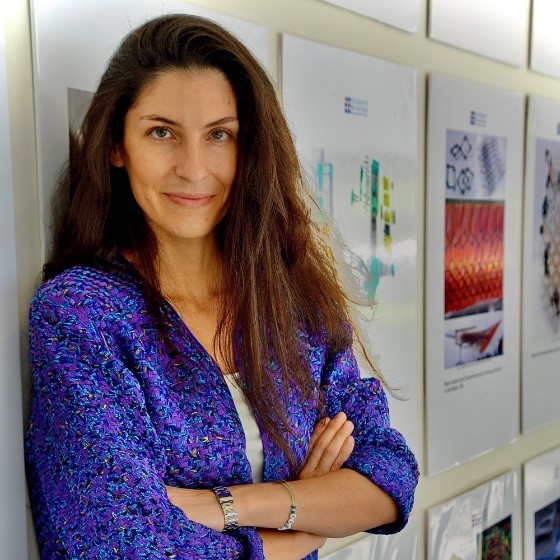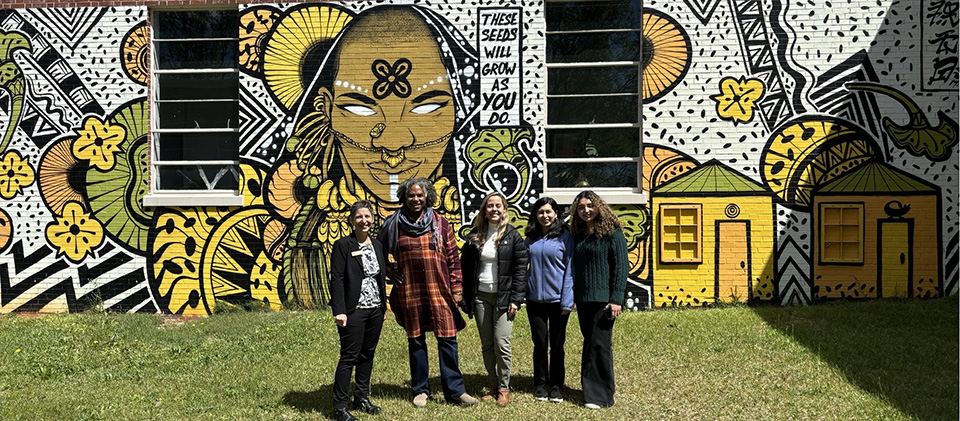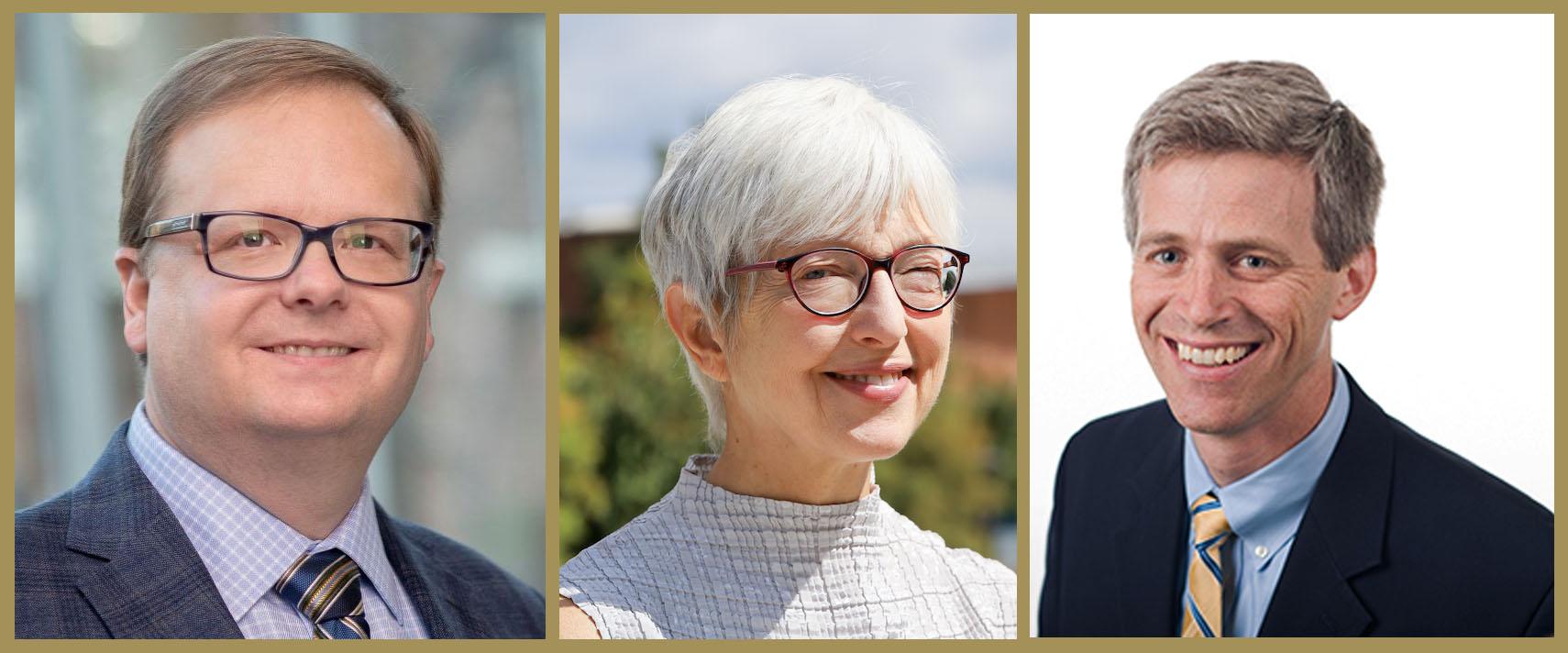From Left to Right: Gary Black, Bo Arduengo, and Andy Bommarius (RBI Strategic Initiative Lead) from the ReWOOD Initiative, Larissa Fenn from RYAM, Andreas Villegas, President of the Georgia Forrest Association and Keynote Speaker, Chris Luettgen RBI Strategic Initiative Lead, Carsten Sievers, RBI Strategic Initiative Lead, Matthew Realff, RBI Strategic Initiative Lead, Carson Meredith, RBI Executive Director, and Valerie Thomas, RBI Strategic Initiative Lead.
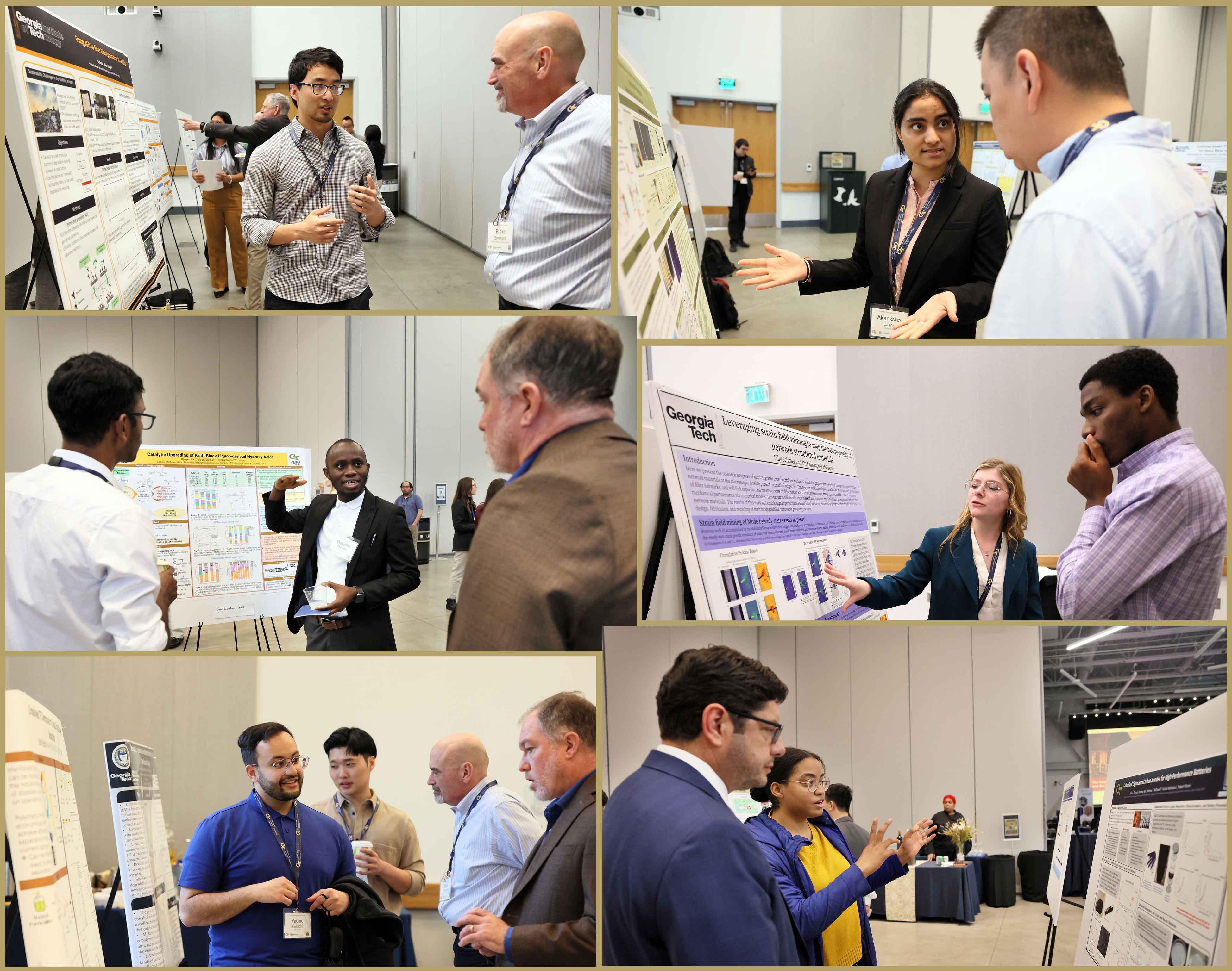
RBI Fellows Discussing Their Research with the Workshop Participants
With the nation’s goals to net zero well underway and the world moving toward sustainable production methods, biorefineries play a crucial role in our transition to a greener future. These multifaceted facilities convert biomass into biofuels, biochemicals, and bioproducts; foster a circular economy; and reduce reliance on fossil fuels while promoting environmentally friendly industrial practices.
The Renewable Bioproducts Institute (RBI) at Georgia Tech recently hosted a workshop on the Emerging Bioeconomy and the Future of Biorefining. The event cultivated new partnerships as more than 75 attendees from academia, national laboratories, and industry shared and learned about the cutting-edge developments in the emerging field.
Carson Meredith, executive director of RBI, said, “The workshop provided an immersive experience for the attendees with access to knowledge, opportunities to network, and a platform for collaboration to positively impact their understanding and involvement in this rapidly evolving field. I saw a lot of human connections being made, a lot of people shaking hands, and having conversations off to the side. That’s exactly why we hold such workshops — to exchange ideas within the Institute as well as between researchers in universities, industry, and national labs.”
The program started with a keynote by B. Frank Gupton, professor of chemical and life science engineering at Virginia Commonwealth University, on creating resilient national supply chains for essential medicines and the need for waste reduction through process chemistry improvements to reduce the carbon footprint in the pharmaceutical industry.
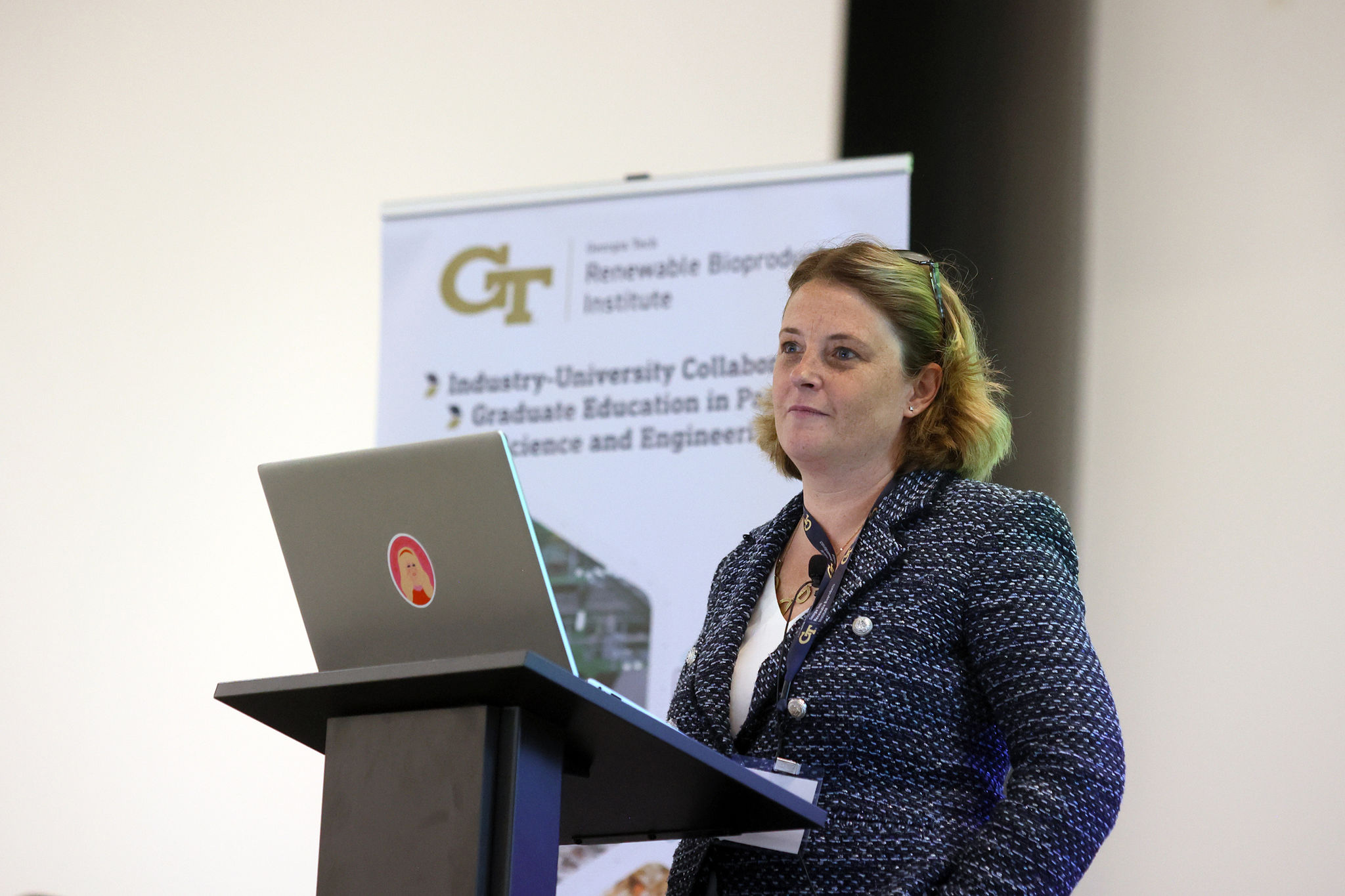
Kim Nelson, CTO of GranBio and Georgia Tech Alumnus at the
2024 RBI Spring Workshop
Various presentations from RBI’s research faculty demonstrated the depth of research in the field of bioeconomy and biorefineries. Topics included integrated biorefining processes by multicomponent separations and catalytic conversion, lignin-derived phenol as the new platform of biorefineries, catalytic conversion of organic acids, data-driven biorefinery process control, hot topics in lifecycle assessment, and more.
A highlight of the annual workshop was the student poster session that showcased the diversity of research happening in the renewable bioproducts field. Over 25 RBI Fellows, spanning chemical and biomolecular engineering, mechanical engineering, materials science and engineering, civil and environmental engineering, and chemistry and biochemistry presented their research to a highly engaged audience.
Andreas Villegas, president of the Georgia Forestry Association and the dinner keynote speaker, addressed the need for educating the community about working forests and their potential to create carbon-neutral products and reduce greenhouse gas emissions. Working forests in the state of Georgia are managed with a growth-over-harvest-rate of 50% and are a natural solution to the major challenges in sustainable forests and communities.
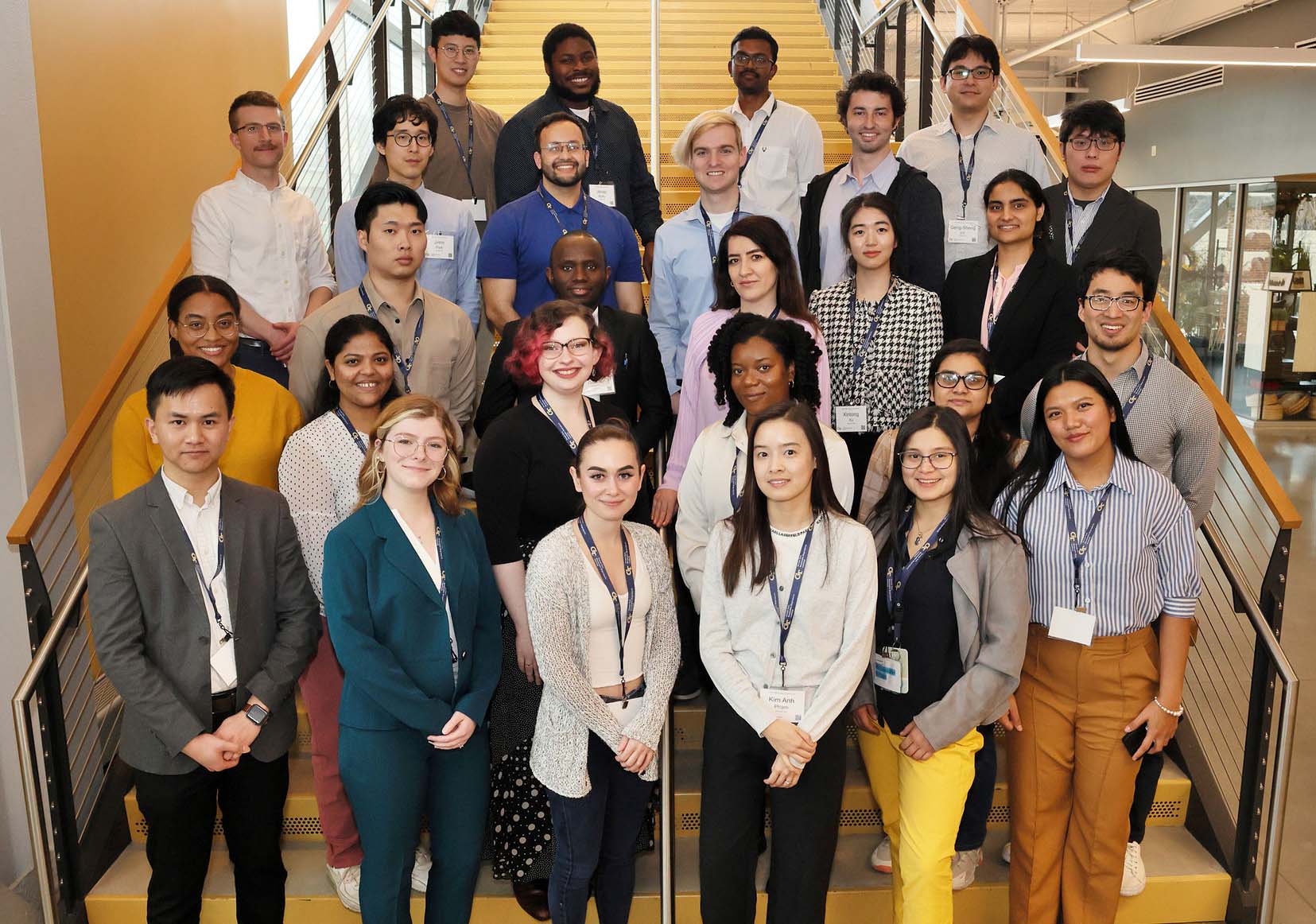
2024 RBI Student Fellows at the Workshop
Blake Simmons, keynote speaker from the Lawrence Berkeley National Laboratory, discussed the importance of intellectual property models and licensing technology models that will allow companies to access new processes emerging in the field.
Mi Li, assistant professor of biorefinery and sustainable materials from the University of Tennessee, presented his research on the modification of plant cell walls, while Bronson P. Bollock, professor of forest biometrics and quantitative timber management at the University of Georgia, presented the current issues and factors in the quantification of forest biomass feedstocks.
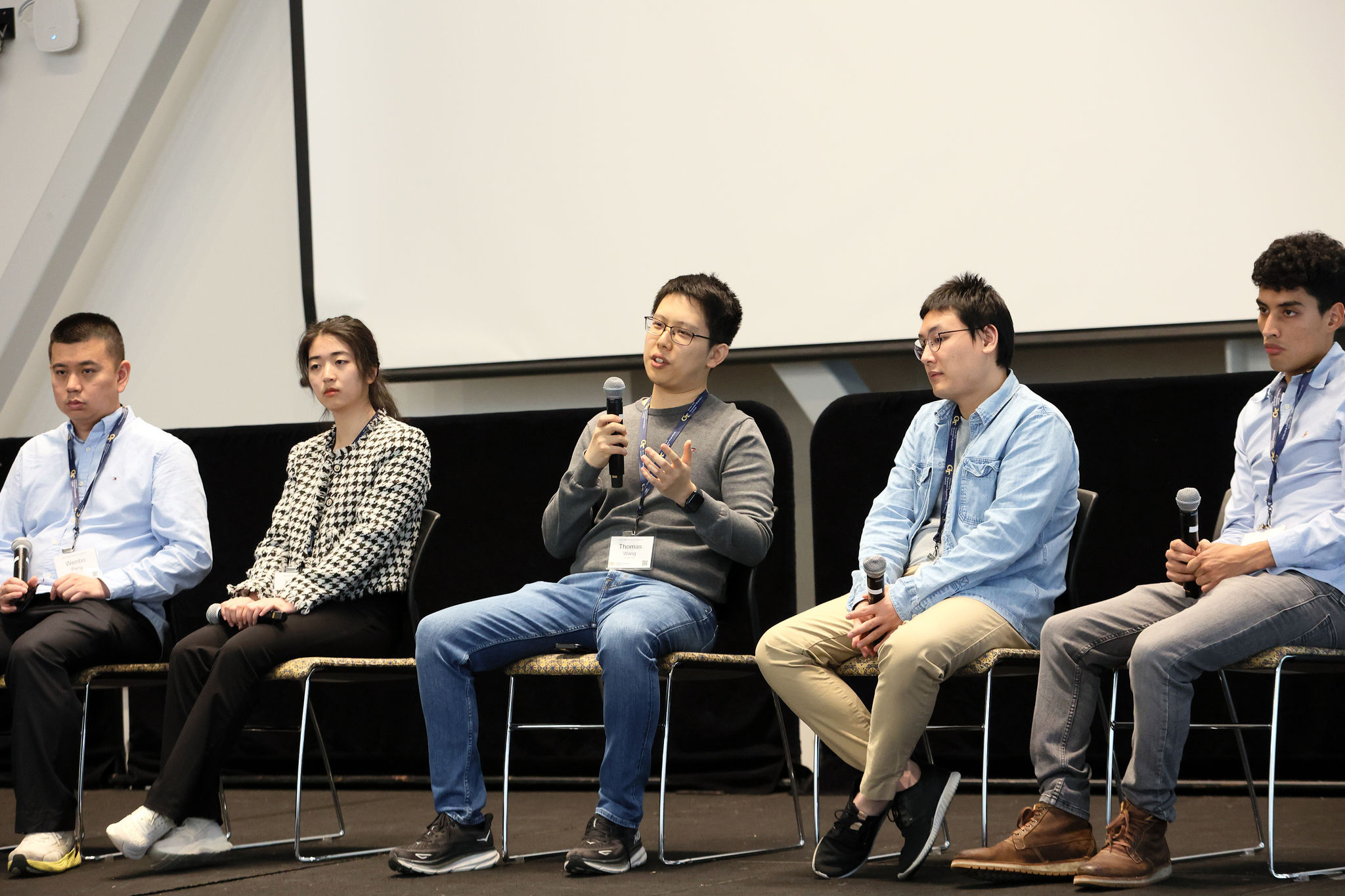
Student Panel at the RBI Spring Workshop
Kim Nelson, the chief technology officer of GranBio, addressed the opportunities and challenges in meeting the global demand for sustainable aviation fuel (SAF) and low-carbon bioproducts. Nelson presented GranBio’s patented AVAP technology that uses woody biomass to produce SAF, renewable diesel, electricity, and other byproducts like BioPlus nanocellulose for tires in the process.
“At this moment, there is a tremendous federal, state, and industrial focus on developing the U.S. bioeconomy,” Meredith said. “RBI's vision is that pulp producers and users of wood extractives and byproducts have an opportunity to develop higher margin products from woody biomass residues, including plastics, pharmaceuticals, and fuels, without disrupting current paper and lumber markets. Traditional petrochemical producers of these products have an opportunity to substitute more carbon-neutral sources as feedstocks. Our workshop sought a conversation around the opportunities and challenges from feedstock to the marketplace.



